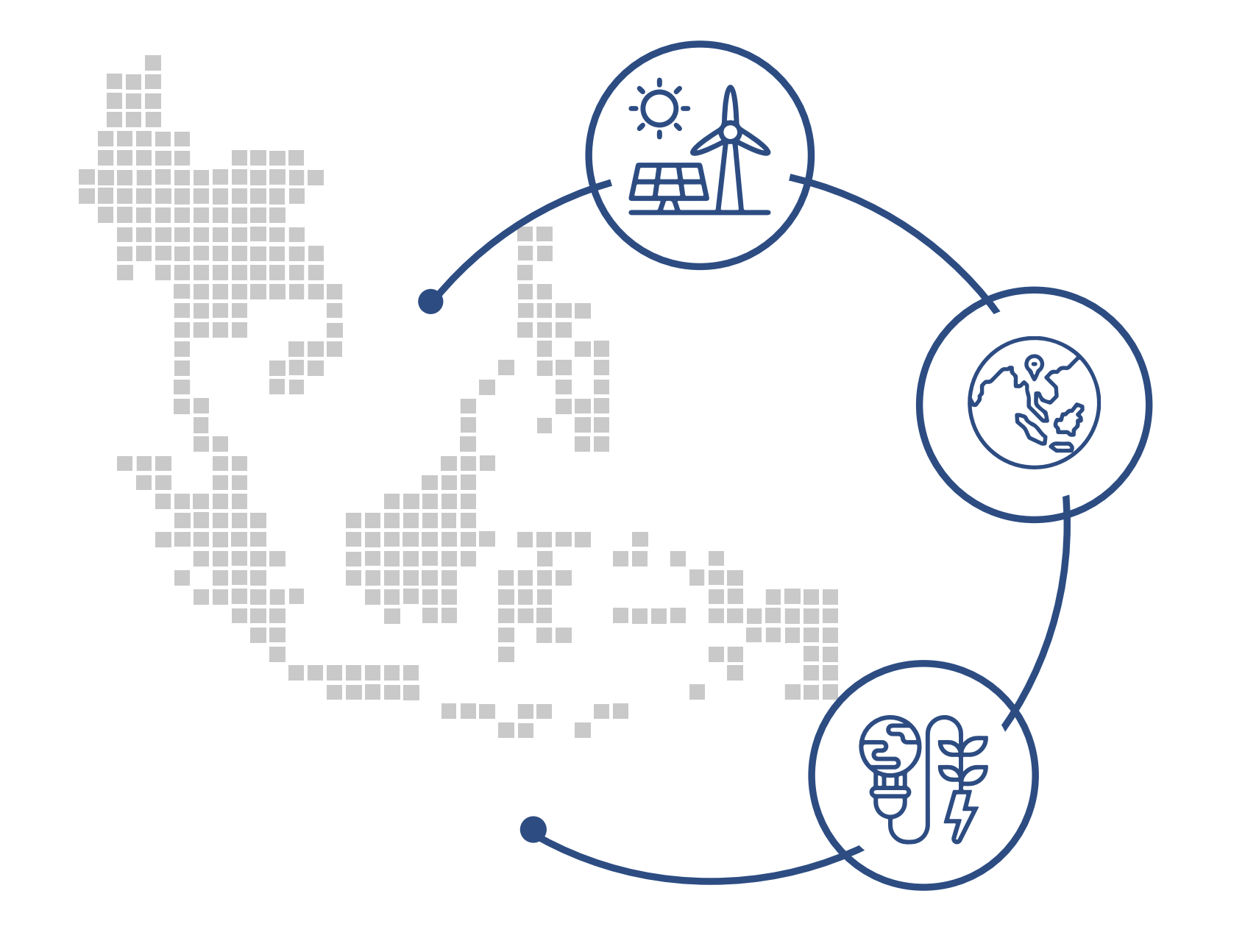This publication shares the results of a survey to help identify drivers, impediments, and priorities for Indonesia’s sustainable finance market to inform support for its development.
The survey assessed institutional investors’ interest in green bonds issued in Indonesia and explored the perspectives of local arrangers and underwriters on their clients’ interest in green bond issuances. The findings serve as a resource to inform action to accelerate the market’s development. The publication was prepared in collaboration with the Global Green Growth Institute.
Survey Highlights
- The survey was conducted in March 2022 via an online platform and received a total of 154 responses from 108 local institutional investors, mainly comprising
- pension funds, insurance companies, and asset management companies; 6 local underwriters and rating agencies; and 40 securities issuers.
- While most local institutional investors expressed interest in investing in green bonds, a substantial proportion of respondents indicated that they lack the resources and capacity to develop and implement environmental, social, and governance (ESG) investment policies. In the meantime, all underwriters indicated that they are willing to explore the possibility of underwriting green bonds for their clients. However, almost half of issuers responded that they are not yet interested in issuing green bonds, but with a majority of respondents indicating an interest in issuing green bonds in the next 3 years.
- Renewable energy, energy efficiency, and clean transportation were regarded as the most promising sectors for green bond market growth in Indonesia among all respondents. Underwriters identified green buildings as another promising sector in terms of potential issuance.
- A majority of investors cited a lack of a green project pipeline as a major impediment to the development of the green bond market in Indonesia. Meanwhile, most underwriters mentioned a lack of awareness of green bonds and not understanding their clear benefits as the two primary barriers. While issuers agree that a lack of knowledge is a major impediment, they also stated
- that the additional procedures required to issue a green bond, as well as the additional issuance costs, are significant disadvantages.
- A majority of investors believe that greater policy clarity from the government and regulators is critical for the development of the green bond market, followed by tax incentives for green bond issuers and investors. Underwriters believe that preferential buying by institutional investors and an increased pipeline of green projects are critical to increasing the green bond supply in Indonesia. Tax incentives and policy clarity from the government are also important, according to issuers.
Key Findings
The green bond market in Indonesia has the potential to expand further. The majority of respondents are interested in green bonds but lack the necessary resources and capacities to invest in or issue green bonds. While a significant number of green bonds have been issued in offshore markets, Indonesia has enormous potential to develop a domestic green bond market denominated in the local currency, given the strong interest among domestic capital market stakeholders.
Renewable energy, energy efficiency, clean transportation, and green buildings are considered the sectors with the most potential. Investors and underwriters identified renewable energy, energy efficiency, clean transportation, and green buildings as the main sectors that can drive green bond market growth in Indonesia. Meanwhile, a majority of local investors are already investing in ESG indices that comprise companies with an outstanding ESG performance.
The benefits of green bond issuance must be more clearly articulated. There is still a relatively high share of potential issuers that remain unconvinced of the benefits of green bonds. In particular, there appears to be a lack of awareness of green and other thematic bonds, a lack of knowledge of the regulatory advances made by the Financial Services Authority (OJK) to spur the market, as well as a
belief that green bonds do not carry substantial benefits. The market appears to be waiting for more concrete incentives such as subsidies or tax benefits. In terms of timing, a large portion of the market appears to think that the issuance of green bonds is a medium-term objective, not an immediate one. The majority of investors cited the absence of a pipeline of green projects as a significant barrier to the development of the green bond market in Indonesia. To meet the increasing demand of investors, it is necessary to increase the supply of domestic green bonds, and this is an area where development partners could play a role.
There is an urgent need for more capacity building among advisors, underwriters, and potential issuers. A large portion of market practitioners indicate that they lack awareness and knowledge of the green bond market. They also recognize that the issuance of thematic bonds is more complex than conventional bonds and that they do not yield substantial added benefits.
Greater policy clarity from the government and regulators is needed. A majority of investors believe that greater policy clarity from governments and regulators is necessary for the growth of the green bond market, like for example some guidelines for issuers and investors on the definition of thematic bond issuance, as well as some indication of what support governments and regulators can provide to the market. This could be why there is not yet a sufficient supply of green bonds in the local market. Meanwhile, underwriters believe that preferential purchasing by institutional investors could be a significant factor in getting potential issuers to consider a green bond issuance. If there is no obvious demand for green bonds, issuers may be hesitant to sell them. From the perspective of issuers, government tax incentives and policy clarity are also essential.
Click here to see the full report from Asian Development Bank






